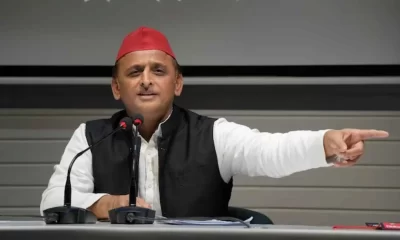Latest Politics News
Mulayam, Akhilesh get CBI clean chit in disproportionate assets case

India News
Ajit Pawar’s son seeks detailed probe into Baramati plane crash
Jay Pawar has demanded a comprehensive probe and action against the aviation firm after the Baramati plane crash that killed Ajit Pawar and four others.
India News
PM Modi sends congratulatory letter to Tarique Rahman after swearing-in
Lok Sabha Speaker Om Birla handed over Prime Minister Narendra Modi’s congratulatory letter to Bangladesh Prime Minister Tarique Rahman following his swearing-in and extended an invitation to visit India.
India News
Navjot Kaur Sidhu says Rahul Gandhi disconnected from ground realities
Navjot Kaur Sidhu criticises Rahul Gandhi after exiting Congress, alleging corruption in the Punjab unit and predicting defeat in upcoming state elections.
-

 India News6 hours ago
India News6 hours agoWorld praised India’s AI potential at AI Impact Summit, says PM Modi
-

 India News6 hours ago
India News6 hours agoJNU protest turns violent as Left and Right student groups trade charges
-

 India News7 hours ago
India News7 hours agoDevendra Fadnavis seeks CBI probe into Ajit Pawar plane crash
-

 LATEST SPORTS NEWS6 hours ago
LATEST SPORTS NEWS6 hours agoICC Men’s T20 World Cup 2026: South Africa outclass India with smart slower-ball strategy in Super 8

















